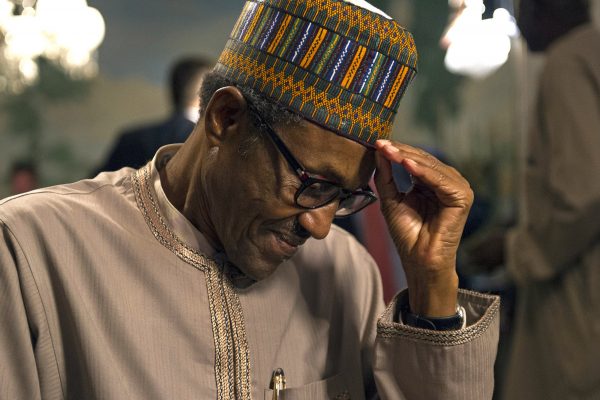A former minister of Education in the country and also a member of the Northern Elders Forum, Prof. Ango Abdullahi has urged the country to separate if the components making it up find it hard to cope with one another.
Abdullahi noted the nation’s unity is negotiable.
The former Vice Chancellor of the Ahmadu Bello University, ABU, in Zaria made this known on Tuesday at the public presentation of two books: Boko Haram: The Charade vs Reality and The Life and Times of Umaru Turakin Bauchi, written by a former Diplomatic Editor of the Voice of America and now visiting Professor in ABU, Zaria, Hadiza Wada.
Abdullahin during his speech delivered at the event which held in Abuja urged the Federal Government to tackle the Issue of the Niger Delta Avengers militant group before tackling Boko Haram insurgents.
He said: “Our greatest challenge today is political instability, created, unfortunately, by politicians and the Nigerian elite. We are responsible for the conditions we are experiencing today and that we have experienced over the years. This is the basis on which we have made slow or no progress in our development. We are hearing about the restructuring of Nigeria. We’re hearing about secession; we are hearing all sorts of things (sic) and who are the promoters of this rhetoric?
“These are from elite of the country. They’re right to say their minds, but they should also leave me to say my mind when the time is right. If Lord Lugard made a mistake in 1914, let’s correct it now. Why not? If Nigerians cannot live together and allow peace and development to take place, then let’s go our different ways and to our different places, so we can concentrate and develop our children and grandchildren in peace. There’s nothing wrong with that. So many countries have gone through that before. So, I don’t believe in all this emotion and sentiment that Nigeria is indissoluble. There’s nothing like indissolubility in any country.
“Take Britain, they’ve been a model for 1,000 years of democracy; and then, a year or two ago, Scotland, that had been in the United Kingdom for about 350 years, opted to go for a referendum to get out; same problem with Ireland. Soviet Union was only a superpower many years ago; today, 12 or 13 countries are there. So what is so special about Nigeria? If we find truly that we cannot develop and guarantee the welfare of our people as a nation and the solution is to go our separate ways, why not? So you see, this is the thing we have to always discuss at all times honestly.”
The former vice chancellor while speaking on the Islamist-Jihadist sect, Boko Haram, said: “You ask the question: where did Boko Haram get their sophistication and articulation from? No doubt from external connections, but external connections can only thrive if they have internal connections in the country itself.
“But the real offence: people who ‘knew’ and should have spoken out did not do such. Some of us, including my teacher and I, went to see (former President Goodluck) Jonathan to discuss it. Some days later, we heard there was going to be dialogue but then two weeks later, a state of emergency was declared and Boko Haram was banned. So, the question is: who are you talking with if you have banned Boko Haram? Yes we accepted Boko Haram for those who described them as ‘Islamist terrorists’, fair enough; but what about economic terrorists? In the Niger Delta, for example, people who came out openly and said they’re avenging something and that they’re fighting to avenge something, they’re worse than what’s happening in this country; they’re worse than Boko Haram. If you’re not going to fight Avengers, then stop fighting Boko Haram.”

